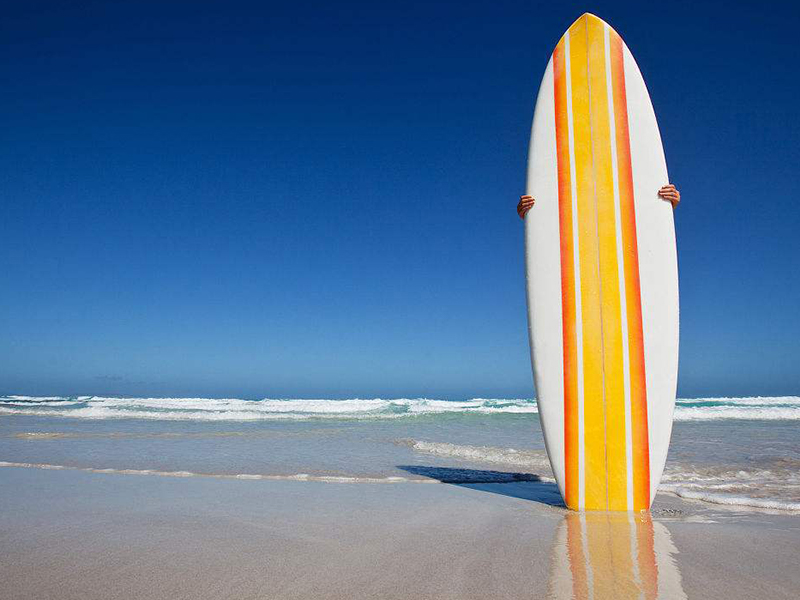




 Company News
Industry News
Company News
Industry News

Address: No. 66, Hongkong Road, Fenglin, Weihai Economic and Technological Development Zone
Tel:+86-631-5928588
+86-13356309266
info@dafangoutdoors.com
How to choose the right surfboard for you?

-length (Length)- the Length from the head of the board to the tail of the board (the measurement of the wave board is in imperial units). Length is usually the basis for the classification of the board
-width - generally wider boards have better stability and narrower flexibility
-thickness (Thickness) -thickness is usually the main factor influencing the water drawing
-Rail(plate edge)- the design of the plate edge has the greatest impact on the steering function of the board
-Rocker(radian)- Rocker refers to the degree of bending between the bottom of the board and the head of the board. When the Rocker is larger, it is not easy to insert water into the board head and the turn is more flexible
At present, the design of the Bottom of the board is mainly in the shape of Concave. The so-called Concave refers to the Concave surface at the Bottom of the wave board. When water flows through Concave, it will lift and increase the speed of the board. There is also a Channel(groove) board bottom design. This type of plate type can see several deep and obvious grooves at the bottom of the board, so that the water flows from the board head into the board more quickly from the tail of the board. In addition, the design of Vee bottom is rarely seen in recent years
-Stringer- the middle rail of the board! Commonly known as the keel, the main function is to enhance the strength of the board
-Tail - the shape of the Tail is probably one of the most important factors affecting the performance of the board
surfboard
Pintail pointy end: the pointy end provides excellent control and stability of the board, and is best suited for large, rolling waves! Almost all of the big wave special Gun plates are designed with this type of tail.
Round Tail Round Tail: small waves can be played due to the large area of the end of the board in contact with the wave surface.
Roundpin Tail round pointed Tail: the Tail of the board is between Pintail and Roundtail, and this type of wave board is good for mid-size waves from shoulder to shoulder.
It was a popular design that was short, but it was also clean and neat
Swallow Tail swallowtail swallows: swallows are actually two pointed tails. They have a large area of contact with the wave surface, so small waves are a good choice. The speed on the waves is good and the steering is flexible
Bat Tail Bat Tail: this is a relatively rare Tail design in the past, but it has increased recently! Bat tail is basically the same as Swallowtail, but it adds more stability because of an extended midpoint on the tail.
Diamond Tail: Diamondtail is originally intended to be a soft, square Tail and to keep its speed
surfboard
The war of materials over the years in surfing panels is "war of epochs and glass fibers". Generally speaking, the types of surfing boards in the market are divided into these types:
A. glass fiber (PU or POLY for short)
B. EPOXY (EPOXY resin in Chinese)
C. Plastics (ABS, s-core)
D. foam (EVA, PP, PE, EPS)
E. wood (Old school series)
Characteristics of glass fiber board: elastic; Fast; The buoyancy is moderate, the board break hole water will only stay on the surface
Features of EPOXY board: light weight; Bruise; Good buoyancy, the board hole will be full of water
Surfboard shape and deflection
The shape of the head of the plate is usually semicircular or semicircular skewness. Of course, the tip of the plate with a semicircular skewness will be more flexible in steering (the more pointed the plate head will be more flexible in steering).
The more flat plate warps because it has more contact area with the water, so it is easier to be driven by waves, so it will be faster, but the steering is not flexible; The stiffer the plate, the more flexible it turns, but slower.
About the weight
Board weight: too light board only indicates that it is easy to take, but it is not strong and easy to break the board. The following is the size and weight of the board for reference
Below 6 feet 4: about 3.8KG
Below 7ft 2: about 4.5kg
Below 7ft 8: about 5.2kg
Below 8ft 1: about 5.6kg
8 ft 2: about 5.9KG
9 ft 0: lighter at 6.8kg, standard at 7.3kg, stronger at 7.8kg
10 feet: about 7.5kg
11-foot SUP: about 8.5KG
How to choose the right equipment?
If you're a novice surfer, the best thing to do is ask your friends to borrow a board or rent one. If you're new to surfing, it's best not to think about owning a small, stylish board, expensive wet suit or other outfit. There are two good reasons. First, you may find that you don't love surfing. Second, for starters, the right board is often not small and lightweight at all.
For starters, the board is more appropriate, and you can take as much as you want. Understand? It's best to have a board at least 8 feet long, preferably 9 feet or more. It would be better if you could get a foam texture. Today in the Chinese market, you can also buy a lot of very long and beautiful boards.
You don't have to think about using short boards when you're surfing. Short boards are just one type of surfboard, and can only be used in certain situations, not anywhere at any time. The long board is the classic surfboard, a traditional style most surfers have used for decades. It was only in the 1970s that the shortboard was designed.
At the beginning of training, using a large soft board (also known as a practice board) ensures that you can catch waves more easily, and that you can avoid injury by repeatedly falling on or being hit by the board during the first few days. So go to the beach and get a coach and make sure you can use a soft board. It's for your safety. Remember, surfing isn't just chasing the waves you see in the movies. Who knows, maybe one day you'll really find yourself a gifted extreme surfer. But more often than not, surfing is an experience that allows you to be safe in the ocean with your friends and experience the ocean and nature.
"The best surfer is The one who enjoys more when in The water! .
SURFBOARD
SPORTS BOAT/SPEEDBOAT
ENTERTAINMENT
HARD BOTTOM BOAT
CANOE
FISHING BOAT
DRIFTING BOAT
CONTACT US